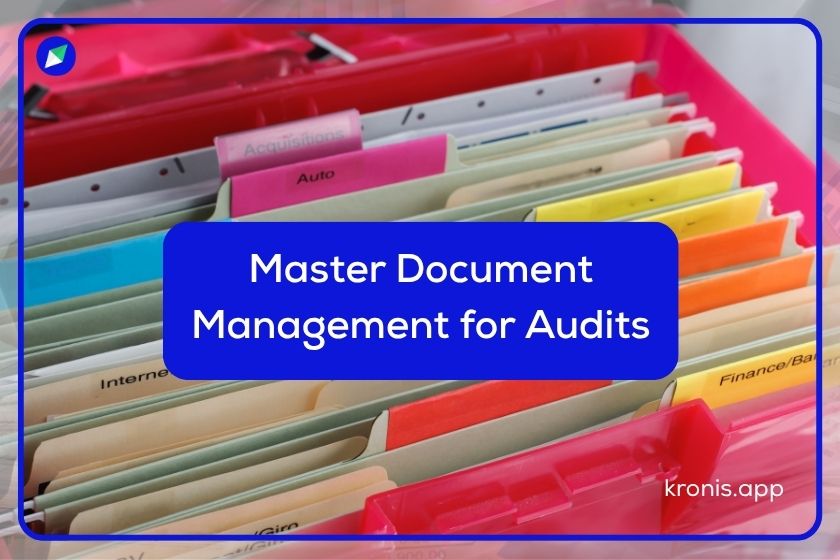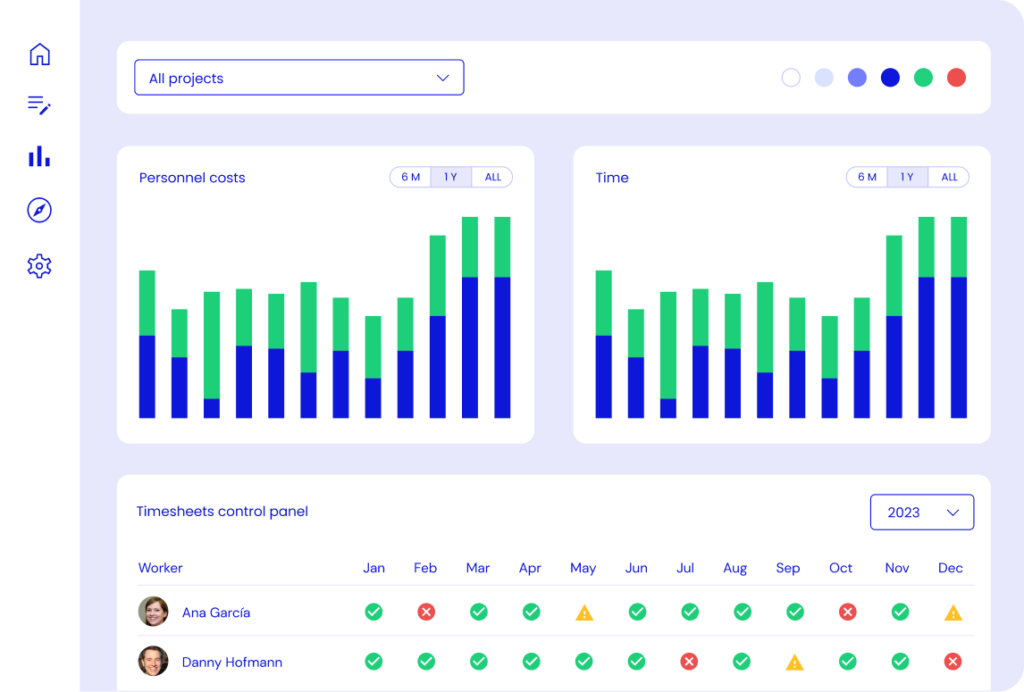Based on Article 20 of the Grant Agreement—explained for beginners.

Introduction
Managing a Horizon Europe project is an achievement, but it also comes with responsibilities that many teams underestimate: paperwork. While the research, experiments, or new products might be your main focus, the reality is simple—EU funding comes with strict documentation rules.
Overlooking this side of the project is one of the most common mistakes among newcomers, and it can cost you much more than just time. Auditors can check your records years after your project ends, and if you’re not ready, you could lose funding you thought was already safe.
What’s the key to sleeping soundly? Developing habits and systems that make sure every document is in order—not just for today, but for years to come.
Why Is Document Management So Important? (Article 20, Simply Explained)
When the EU funds your project, they’re investing public money and want to be certain every euro is spent as agreed. That’s where Article 20 of the Grant Agreement comes in.
This article is the official rule that requires you to keep all your project’s records and supporting documents for at least five years after you receive the final payment from the EU.
But it’s not just a bureaucratic hurdle—there’s a good reason for it:
- Transparency: The EU must be able to see exactly where the money went, for every cost and result claimed.
- Accountability: If the Commission (or an external auditor) asks for proof of any expense, decision, or deliverable, you need to show clear evidence.
- Risk reduction: If you can’t prove something happened, the EU can declare that cost ineligible—meaning you might have to return money, even years after the project is finished.
- Peace of mind: Teams who know their records are always in order don’t fear audits. They spend less time searching for old files and more time delivering results.
What does this mean in practice?
You must save not only invoices and receipts, but also timesheets, reports, contracts, bank transfers, and even important email conversations related to your project.
Everything must be traceable—who, what, when, and why.
And this rule applies no matter how small or large your project is. Even if you think “nobody will check,” the risk is real—and it’s not worth taking.
If you ever get audited (which is more common than people think), the auditor can ask for any document related to your project, even years after you’ve finished. If you don’t have it, there’s no second chance.
What Documents Do You Need to Keep?
To keep your Horizon Europe project truly audit-proof, you need more than just the basics. The EU expects you to keep every record that proves what you did, what you spent, and how you made decisions—not just the “big” documents.
Here’s a basic list of what you should always save, but remember:
If in doubt, keep it! In practice, the safest approach is to store everything related to your project.
Keep all of these for at least five years after you receive the final EU payment for your project.
Essential Documents to Keep:
- Signed Grant Agreement and any amendments
This is the official contract with the EU. Always have the final, signed version and any changes you agree to over the life of the project.
- Invoices and receipts
Save every invoice and receipt for purchases, equipment, services, travel, etc.
- Proof of payment
Bank statements or payment confirmations that show you really paid for each expense.
- Payroll records and payslips
Keep payslips, payroll summaries, and records of salary payments for anyone whose work is charged to the project.
- Signed timesheets for all project staff
Digital or paper, but must be filled out correctly and signed by both employee and supervisor. This is crucial for personnel costs.
- Contracts and procurement documents
Agreements with suppliers, subcontractors, consultants, and any supporting quotes or evidence of how you selected them.
- Project deliverables and outputs
Final reports, technical documents, meeting minutes, presentations, publications, prototypes—anything you claimed as a result of the project.
- Important email communications and approvals
Keep emails where key decisions were approved, changes agreed, or questions resolved with the EU or your partners.
Pro Tip for Beginners: If you ever ask yourself “Should I keep this?”—the answer is almost always yes.
It’s better to have too many documents than not enough when the auditor comes.
Smart Habits for EU Project Teams
Having the right documents is important—but how you organise and manage them makes all the difference at audit time. Here are some simple habits that make a big impact, even for beginners:
1. Centralise Everything
Store all your project files in a single, shared digital location. Avoid keeping important records on personal laptops, email inboxes, or scattered folders.
Tip: Use a secure cloud drive or a specialised platform like Kronis to ensure everything is always accessible to the team.
2. Go Digital and Back Up
Paper documents get lost or damaged, and memory sticks are easy to misplace.
Scan every paper document and upload it to your digital archive straight away.
Set up automatic cloud backups so that your files are protected—even if a computer fails.
3. Name Files Clearly
A good naming system saves hours later on.
Use simple, consistent names for every document, such as:
HEU2024_Timesheet_March2024_Smith.pdf or
ProjectA_Invoice_SupplierB_2024-06.pdf
This makes searching and finding files much easier, especially during an audit.
4. Upload as You Go
Don’t wait for deadlines or reporting periods to collect and save documents.
Make it a routine to upload files as soon as you receive them.
A few minutes every week prevents stressful last-minute document hunts and ensures you’re always up to date.
Avoid These Common Mistakes
Even experienced teams make errors with project documentation, but if you’re new to Horizon Europe, some pitfalls are especially easy to fall into. Here’s how to recognise—and avoid—the most common mistakes:
1. Relying on One Person
Mistake:
Only one team member has access to all the important files, usually stored on their own laptop or email. If they leave or are on holiday, everyone else is lost.
How to avoid it:
Always use a shared digital folder or project platform. Make sure at least two people have full access and responsibility for uploading and managing documents.
2. Waiting Until the Last Minute
Mistake:
You plan to gather and upload all the project paperwork right before a reporting deadline—or worse, before an audit.
Real risk:
People forget details, lose files, or can’t find approvals from months ago. This last-minute scramble leads to missing documents and a lot of stress.
How to avoid it:
Make uploading documents a weekly or monthly routine. Set calendar reminders so that documentation is a habit, not a panic.
3. Missing or Unsigned Timesheets and Contracts
Mistake:
Timesheets or contracts are filled out but never signed, or approvals are forgotten. During an audit, unsigned documents are treated as missing—and related costs are at risk.
How to avoid it:
Check regularly that every timesheet, contract, or key document is signed (digitally or on paper). With Kronis, you can send reminders and use digital signatures for instant approval and easy tracking.
4. Losing Track of Access Rights
Mistake:
A former team member or partner still has access to project files—or worse, nobody knows who can access what. This risks both data security and GDPR compliance.
How to avoid it:
Review access rights at least every quarter. Remove access for anyone who has left the project, and document who can access, upload, or approve files at all times.
5. Mixing Project Files with Unrelated Documents
Mistake:
Project documents are saved together with unrelated files from other projects, or even with personal or general company folders.
How to avoid it:
Keep a dedicated folder or digital space just for your Horizon Europe project. Use clear naming and structure so every file is easy to find, for anyone on the team.
6. Not Backing Up Digital Files
Mistake:
All documents are stored in a single location or only on local computers. If there’s a technical problem, everything can be lost in seconds.
How to avoid it:
Always use cloud storage with automatic backups, and check regularly that your files are safe and accessible.
7. Not Keeping Proof of Communication
Mistake:
Decisions made over email, approvals given in meetings, or clarifications from the EU get lost or are never saved.
How to avoid it:
Always save emails or meeting notes where key decisions were made or questions resolved. Create a “Communications” folder for anything that could be needed as evidence in the future.
Final Thought
Great documentation habits are the best protection for your Horizon Europe funding.
You don’t need to be an expert—just consistent, organised, and proactive. By following these simple habits, and using tools built for EU projects, you’ll never fear an audit again. Focus on your innovation; let Kronis keep your paperwork safe.

Indirect Costs in Horizon Europe: Flat Rates, Real Costs, and How to Stay Compliant

Equipment & Direct Costs in Horizon Europe: How to complete the financial statement


